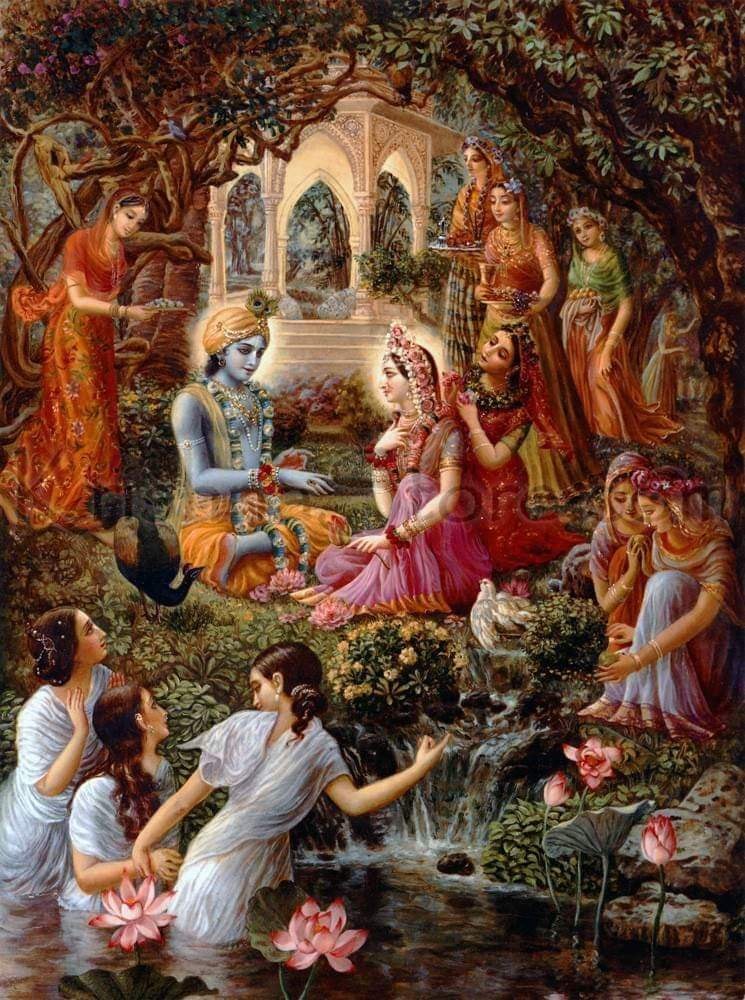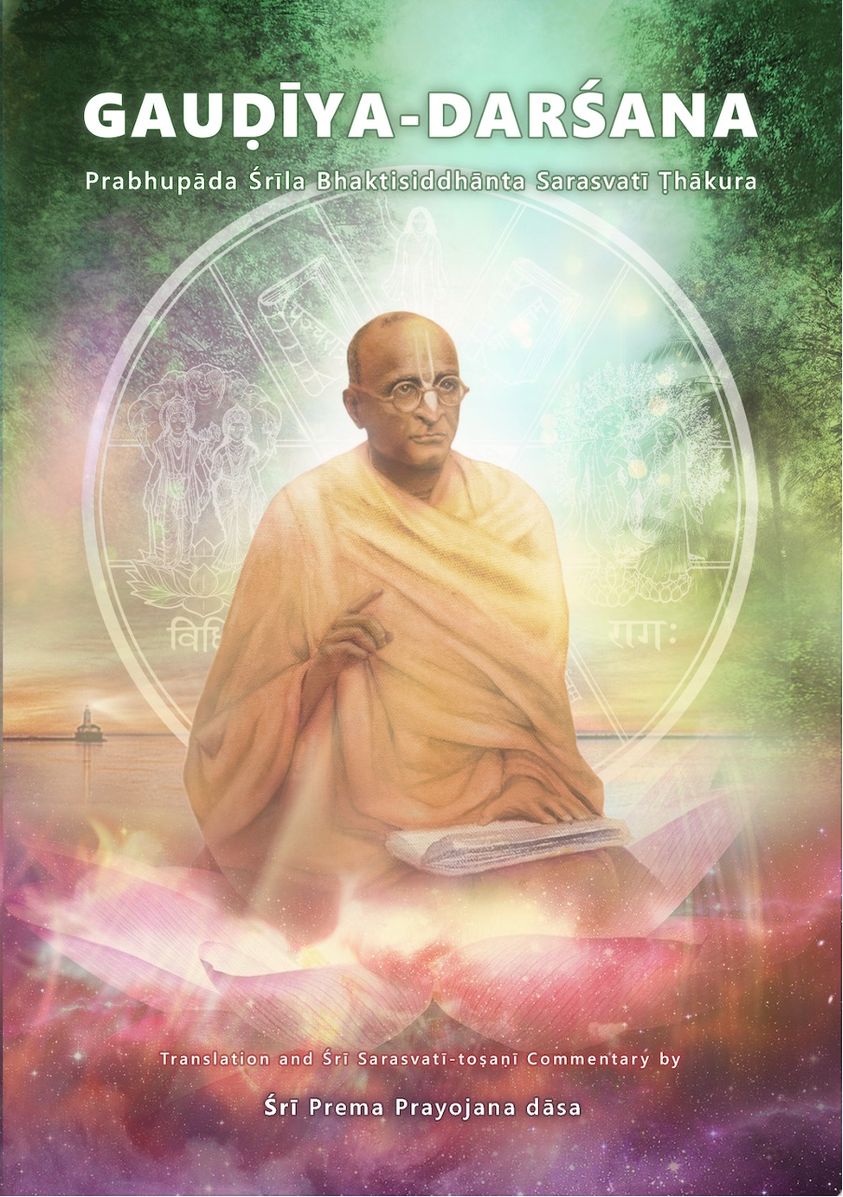Salvation
From Srila Bhaktivedanta Swami Prabhupadas Bhagavad Gita Chapter 5 Texts 24-26

Srila Bhaktivedanta Swami Prabhupada
TEXT 24
TRANSLATION
One whose happiness is within, who is active within, who rejoices within and is illumined within, is actually the perfect mystic. He is liberated in the Supreme, and ultimately he attains the Supreme.
PURPORT
Unless one is able to relish happiness from within, how can one retire from the external engagements meant for deriving superficial happiness? A liberated person enjoys happiness by factual experience. He can, therefore, sit silently at any place and enjoy the activities of life from within. Such a liberated person no longer desires external material happiness. This state is called brahma-bhūta, attaining which one is assured of going back to Godhead, back to home

TEXT 25
TRANSLATION
One who is beyond duality and doubt, whose mind is engaged within, who is always busy working for the welfare of all sentient beings, and who is free from all sins, achieves liberation in the Supreme
PURPORT
Only a person who is fully in Kṛṣṇa consciousness can be said to be engaged in welfare work for all living entities. When a person is actually in the knowledge that Kṛṣṇa is the fountainhead of everything, then when he acts in that spirit he acts for everyone. The sufferings of humanity are due to forgetfulness of Kṛṣṇa as the supreme enjoyer, the supreme proprietor, and the supreme friend. Therefore, to act to revive this consciousness within the entire human society is the highest welfare work. One cannot be engaged in first-class welfare work without being liberated in the Supreme. A Kṛṣṇa conscious person has no doubt about the supremacy of Kṛṣṇa. He has no doubt because he is completely freed from all sins. This is the state of divine love. A person engaged only in ministering to the physical welfare of human society cannot factually help anyone. Temporary relief of the external body and the mind is not satisfactory. The real cause of one's difficulties in the hard struggle for life may be found in one's forgetfulness of his relationship with the Supreme Lord. When a man is fully conscious of his relationship with Kṛṣṇa, he is actually a liberated soul, although he may be in the material tabernacle.

TEXT 26
TRANSLATION
Those who are free from anger and all material desires, who are selfrealized, self-disciplined and constantly endeavoring for perfection, are assured of liberation in the Supreme in the very near future
PURPORT
Of the saintly persons who are constantly engaged in striving toward salvation, one who is in Kṛṣṇa consciousness is the best of all. The Bhāgavatam confirms this fact as follows
yat-pāda-paṅkaja-palāśa-vilāsa-bhaktyā
karmāśayaṁ grathitam udgrathayanti santaḥ
tadvan na rikta-matayo yatayo 'pi ruddha-
srotogaṇās tam araṇaṁ bhaja vāsudevam
"Just try to worship, in devotional service, Vāsudeva, the Supreme Personality of Godhead. Even great sages are not able to control the forces of the senses as effectively as those who are engaged in transcendental bliss by serving the lotus feet of the Lord, uprooting the deep grown desire for fruitive activities." (Bhāg. 4.22.39) In the conditioned soul the desire to enjoy the fruitive results of work is so deep-rooted that it is very difficult even for the great sages to control such desires, despite great endeavors. A devotee of the Lord, constantly engaged in devotional service in Kṛṣṇa consciousness, perfect in self-realization, very quickly attains liberation in the Supreme. Owing to his complete knowledge in self-realization, he always remains in trance. To cite an analagous example of this
darśana-dhyāna-saṁsparśair matsya-kūrma-vihaṅgamāḥ
svānya patyāni puṣṇanti tathāham api padmaja
"By vision, by meditation and by touch only do the fish, the tortoise and the birds maintain their offspring. Similarly do I also, O Padmaja!" The fish brings up its offspring simply by looking at them. The tortoise brings up its offspring simply by meditation. The eggs of the tortoise are laid on land, and the tortoise meditates on the eggs while in the water. Similarly, a devotee in Kṛṣṇa consciousness, although far away from the Lord's abode, can elevate himself to that abode simply by thinking of Him constantly-by engagement in Kṛṣṇa consciousness. He does not feel the pangs of material miseries; this state of life is called brahma-nirvāṇa, or the absence of material miseries due to being constantly immersed in the Supreme









